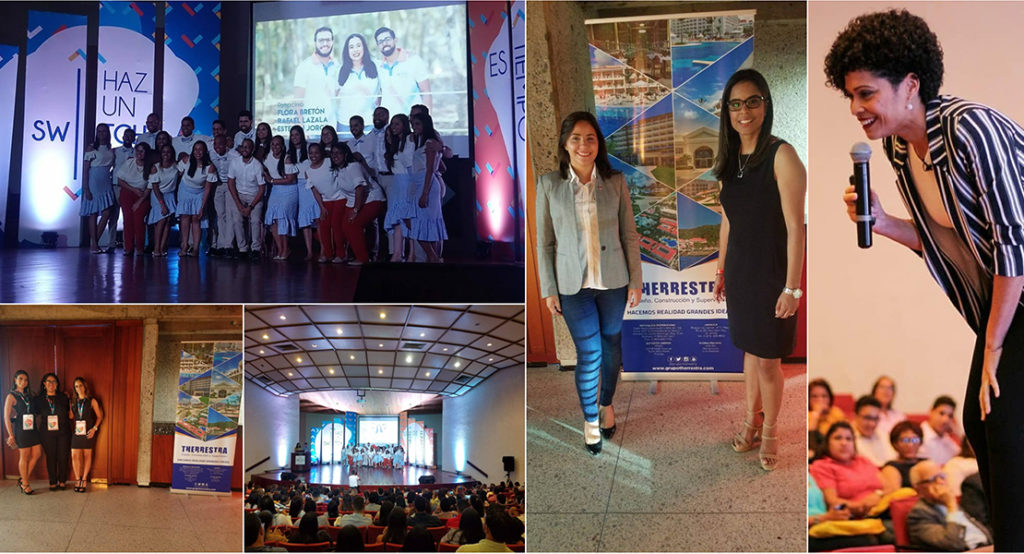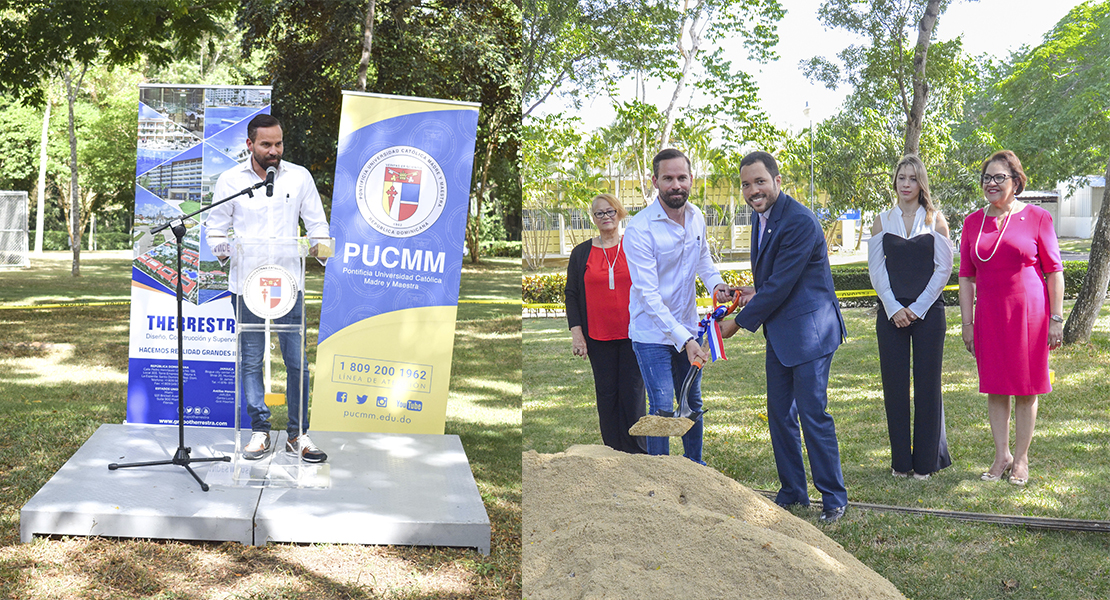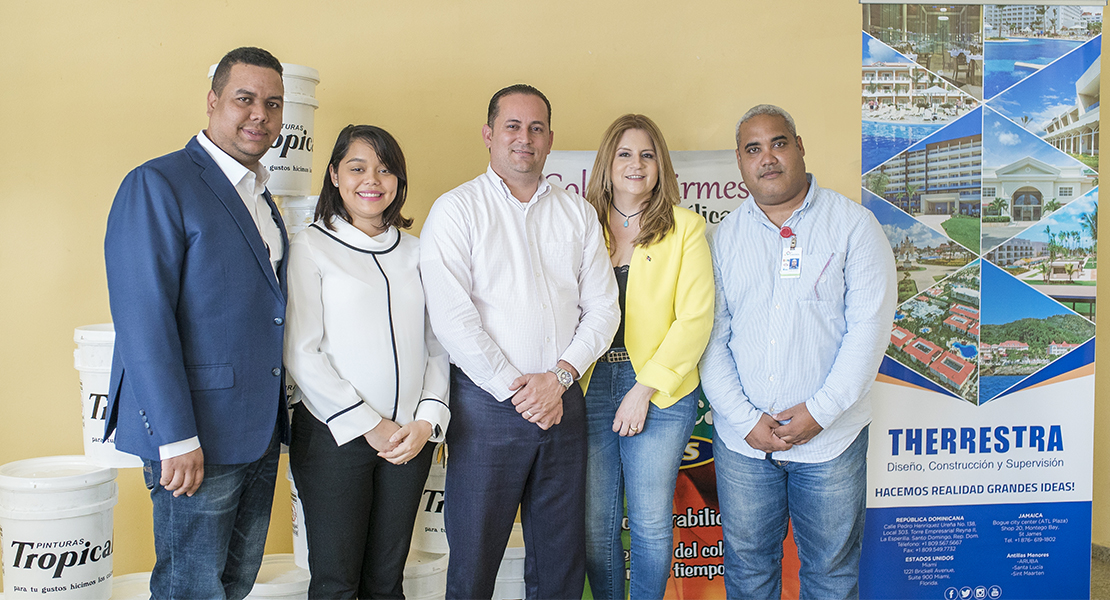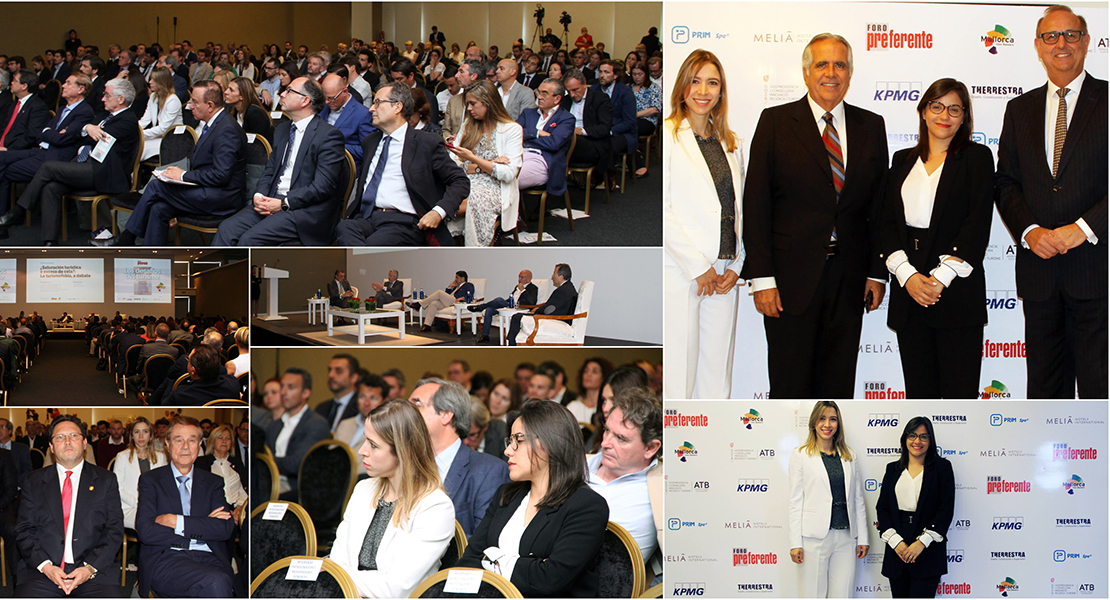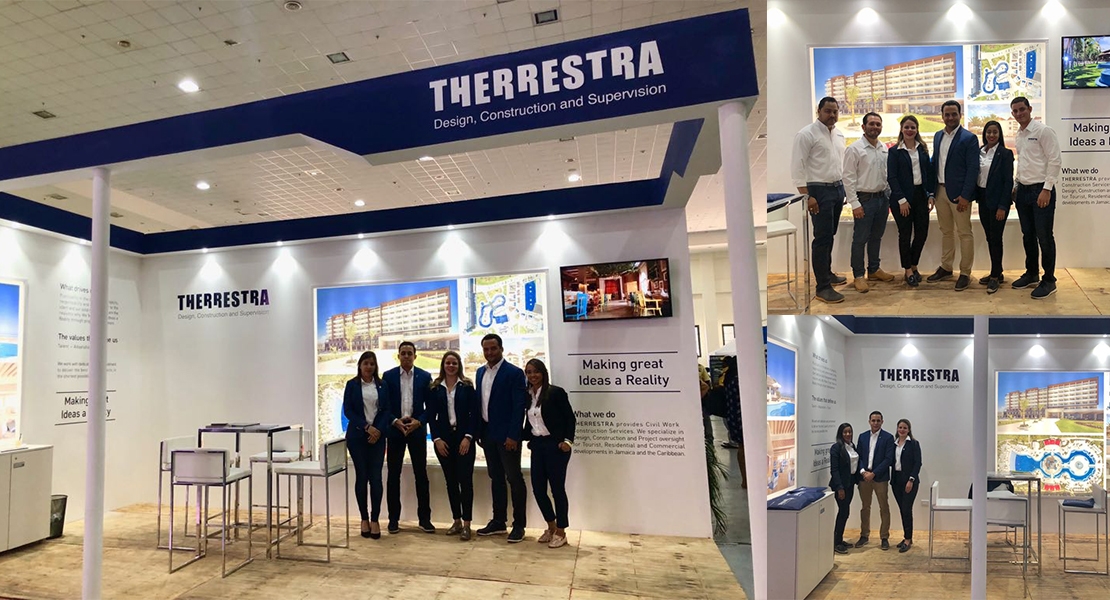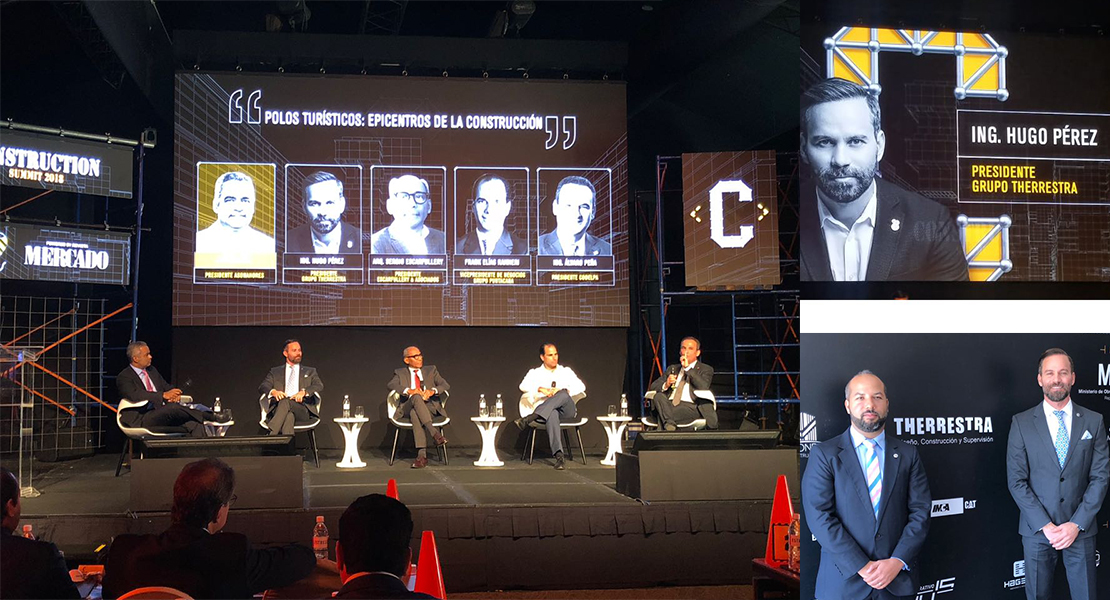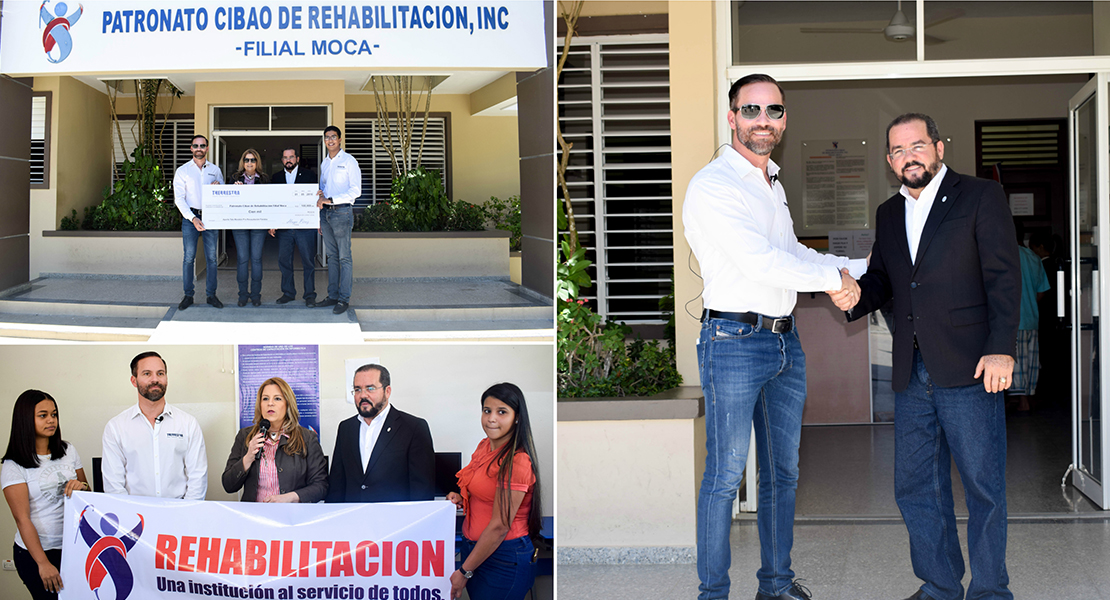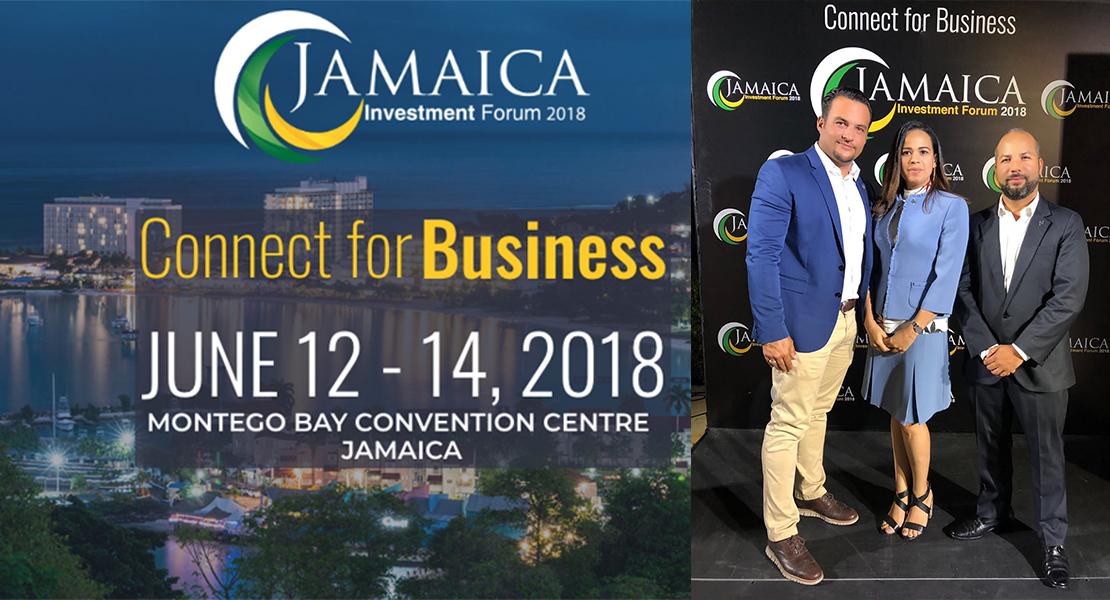Ever since he was 9, Hugo Pérez Ovalles understood the value of hard decent work. He began at a woodwork shop, where he was paid RD$1.00 a week, and when Saturday came, which was payday, he felt the happiest kid in the world. He remembers his childhood days in his beloved hometown of Moca, with love and affection, just as he remembers the camaraderie of his then-fellow townspeople.
Thanks to his drive to become better, he excelled in his studies, and was able to apply for a student loan at the Educational Credit for Academic Excellence, hence becoming the first member in his family to go to college. In 1995, at just barely 21, he graduated with honors in Civil Engineering from the PUCMM University in Santiago. His thirst for knowledge, his effective performance and notable passion for construction and business led him to assume several positions, from resident on-site engineer, all the way to Project Manager.
After working in several hotel developments and studying the current business models, he developed a new niche in the development and management of tourist projects, which led him in 2004, to go freelance, and assume the execution of small hotel developments, which the large construction companies set aside. Upon seeing the potential of the tourist cluster business model, he went all out, and that same year, he founded Therrestra, a company specialized in the design, construction and oversight of projects of this nature.
 What business models served as grounds for you to put yourself out there and launch your business?
What business models served as grounds for you to put yourself out there and launch your business?
“The opportunity to work for myself came on its own, I didn’t set out for it, I just seized it.
But of course, with 10years of know-how I knew what to do and what not to do. I think I merged a little from every experience I had, took the best lessons and best practices learned from each experience, to set up a solid business platform”. Hugo is one of those entrepreneurs that came from a low-income family, and whom set out to better himself by striving to make their dreams come true.
What were the greatest challenges you faced, when you decided to establish your own company?
My case isn’t the exception to the rule, for there are thousands of stories like mine that I can relate to. My biggest challenge was of course, money. The only asset I had back then was a truck. I went to the bank, got a loan for RD$350,000.00 and put my truck as collateral. With that money and my car, I went to work in Bávaro. That was my entire capital and financial assets.
Why Therrestra? Did you envision foresee a promise that this was a niche you could develop and grow?
Therrestra comes from terrestrial, because we all are terrestrial. I didn’t know if it would work, I had no certainty thereof, but there was something I was sure of: There was a lot of work out there, I wanted to work and was willing to try.
What sets Therrestra apart from the rest? What’s your forte?
There are so many construction companies… We all do the same, but since the beginning, we’ve done the same thing, just faster. Our turnover times are very short. That’s our strong suit right there. In 2016, the companu achieved a significant milestone, by being commissioned with 50% of the hotel developments taking place in Jamaica, some 11 years after making out debut in the neighbor island.
How is the expansion across the Caribbean going on?
We are registered in Jamaica, Aruba and Saint Maarten. We are developing proposals in Dominica, and Antigua and Barbuda. We firmly believe there is a lot of hotel development potential to explore in the Caribbean.
Where do you believe the in-country constructions in the hospitality industry are headed? Do you believe the Government’s goal is to reach 10million tourists per year by 2022, using that goal as incentive to boost the sector and develop more keys?
I believe that the construction industry is well on its way, the country is well positioned in the hotel development field, and this continues to grow. We are all swimming downstream and this way, we can achieve the government’s goal of 10 million tourists per year and make it possible. I have no doubt we can achieve this; that’s what we are working for. Several initiatives tend to disappear shortly after or need to reinvent themselves to survive.
What would you do so that “fail rate” decreases?
There’s a song that goes: “What once was, will never be”. That’s the ugly truth; what works today, won’t work tomorrow, and being reluctant to change is in our nature. But it’s been proven, that without change, we cease to exist. We must allow the market to dictate the trends and products to develop. We must listen and stop thinking that we are the center of everything.
You are still quite young, and at 44, you’ve still got a long way to go in life. Do you have other business ventures you’d like to push forward?
“Of course, I’ve got other business venture ideas, and they’re already being developed, slowly……; but we’re well on the right track”. Despite his youth, his extraordinary background positions him at such a level, where he can serve as guide and mentor to those whom wish to set out and as entrepreneurs and develop their initiatives.
What would you say to them?
“There’s no hocus-pocus, nor a specific action that leads to success. There are too many variables involved for success to happen. But, if I had to use one word, it would be “attitude”. Knowledge can be gained, experience is gained ……, but attitude is something you’re born with.
When Hugo Pérez Ovalles isn’t thinking about Therrestra- or when the Billions season ends-, how do you spend your leisure time?
Woof! I love adventures, assisted skydiving, and kitesurfing, rafting, trekking, I love skiing and traveling…. I got tired of seeing the world through books, movies, magazines….. I want to see it and experience it with my own eyes.
What is a place in Dominican Republic you always like to return to, and would advise any foreign visitor to discover when they visit?
A place in the D.R. I always like to revisit and would certainly recommend…..
The Manabao marshes; that’s my getaway, my retreat, my peaceful spot. Phones don’t work there, the rivers are clean and cool; there’s mountain cabins, or you can sleep on a “sleeping bag”, in a tent; there’s a little mom-and-pop shop that sells cool beer, and a lot, well, a whole bunch of good people there.

